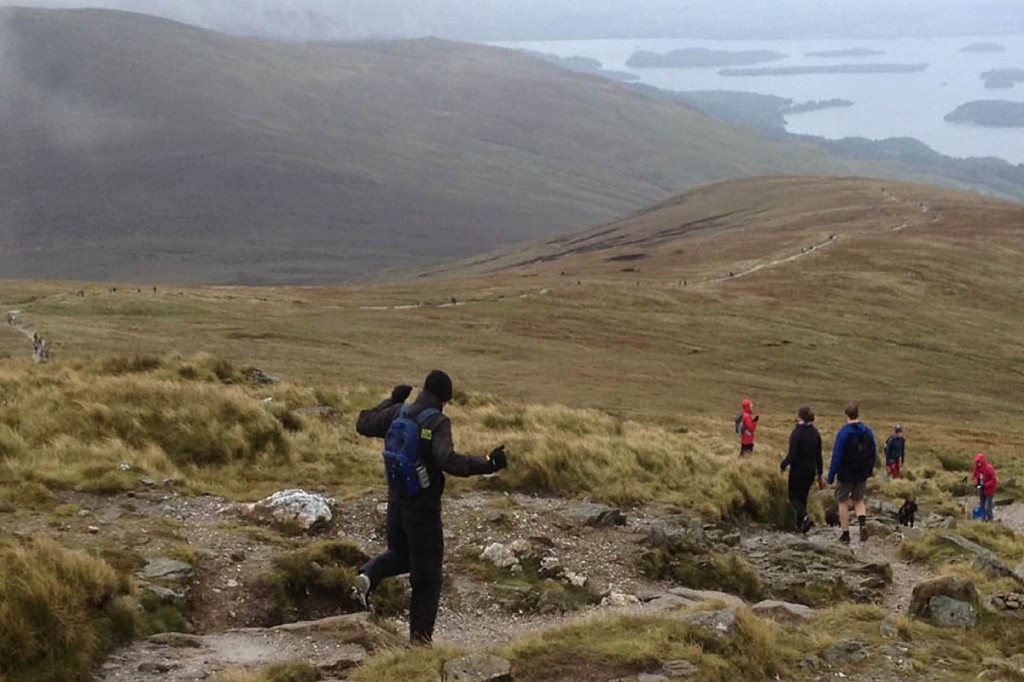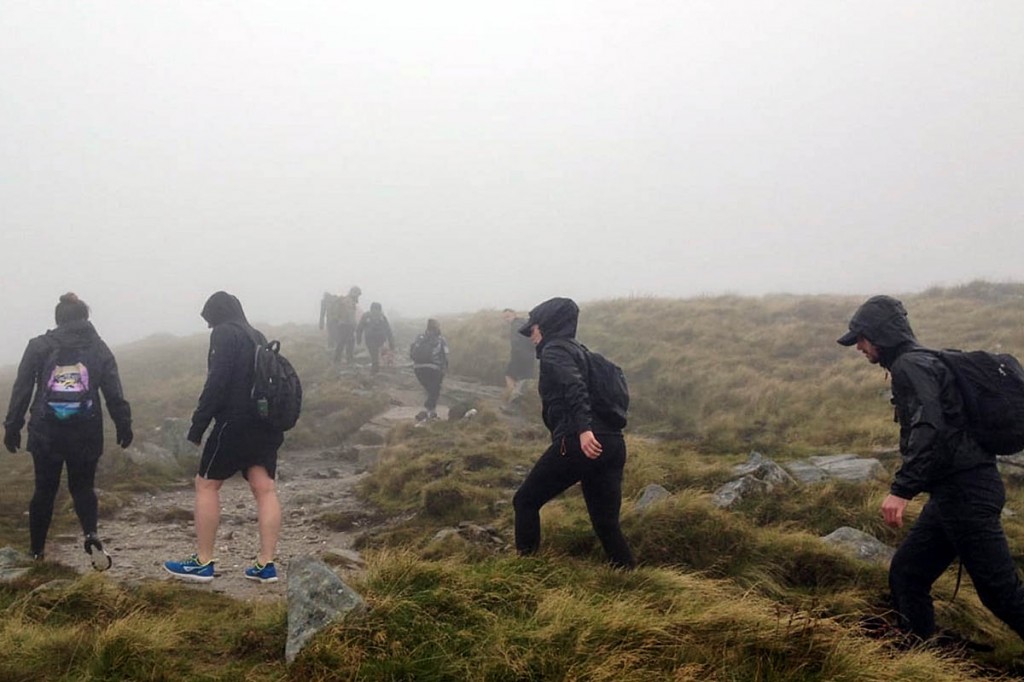Increasing numbers of walkers using mountain paths in Scotland during the coronavirus crisis has led to damage to routes.
People stepping off the footpaths to maintain social distancing, coupled with a doubling of visitors on popular hills has caused serious erosion.
The National Trust for Scotland said its maintenance teams looking after the charity’s 270 miles of paths have seen decades of work combatting weather erosion reversed as paths have widened, new routes have been trodden and delicate vegetation destroyed. The surge in visitor numbers began with the easing of full lockdown and the organisation is asking for the public’s help in preventing further damage.
Particular damage has occurred at Ben Lomond and Ben Lawers, both owned and looked after by the trust. Ben Lomond usually experiences between 45,000 and 60,000 walkers for the whole year but by mid-October was already registering 70,000. At peak times, post-lockdown numbers on Ben Lomond are showing to be twice those of 2019.
At Ben Lawers, since lockdown eased, recording devices on the mountain are showing monthly figures more than double those seen in 2019. About 30,000 people use the routes on Ben Lawers each year and 2020 is expected to record a total figure of double that number.
Helen Cole, National Trust for Scotland property manager at Ben Lawers national nature reserve, said: “It’s wonderful seeing so many walkers and runners enjoying the hills, especially people who haven’t experienced this incredible place before.
“Ben Lawers is quite easy to get to from most parts of Scotland and when you’re at the car park, you’re already a third of the way to the top so we’re very popular.
“It’s heartbreaking though, seeing accidental damage being done. People don’t know they’re doing it but something as simple as walking off the path can be quite a big problem if it’s done in the numbers that we’ve had recently. Social distancing has got a major part to play too, as people try and avoid getting too close to others.
“I’ve been working on footpaths at Ben Lawers for 30 years and I’ve never seen the damage quite as rapid as this. We’ve got some of the rarest mountain plants in Britain here and we’ve spent decades and hundreds of thousands of pounds balancing our conservation work with public access but what’s happened in the last few months has put our work back by years.
“The trust’s footpath team has been working exceptionally hard to keep up but we’re already behind because of lockdown and furlough.
“Visitors can help at Ben Lawers, and all around the path network, by staying on the paths as much as they can. Avoid making your own routes where possible and take your time.
“If you meet someone coming the other way and have to step off the path, please remember to get back on it as soon as you can afterwards. The paths can be rocky, but are robust, and while the verges around them can be softer they get muddy and boggy very quickly which is the start of the erosion process.”
The trust said groups should try to walk in single file along the paths especially on narrow sections and pointed out the person in front of you isn’t necessarily taking the right route, so people should be aware of their surroundings.
It said metal-tipped walking poles can damage the ground; ones with rubber ends cause less harm. Visitors should take their litter home as even biodegradable things like banana skins and orange peel can cause damage to the delicate ecosystems.
The charity’s biggest piece of advice is to take your time and enjoy the experience.


Margaret
14 November 2020Physical Distancing may be part of the issue but it is the number of gym-bunnies that are now taking to the hills for exercise that is the underlying problem.
A problem not just of erosion but a potentially big problem for 'volunteer' Rescue Teams.
Alex
06 January 2021The huge increase in lockdown exercisers using our local paths in Rainow, East Cheshire Peaks is causing horrendous erosion. Apart from distancing issues, long stretches of the paths have been reduced to ankle-deep pudding! The next heavy rains will swill it all down the fields into the stream below. As a local resident I've decided to abandon the paths and have taken to walking along the lanes instead.